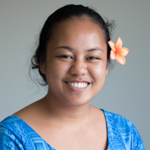Independent Water Schemes increases communities' autonomy
 By Soli Wilson
•
28 September 2020, 10:00AM
By Soli Wilson
•
28 September 2020, 10:00AM
Some 13 years since it was founded, the Independent Water Schemes Association (I.W.S.A.) says it is continuing as an independent alternative but also now giving communities more control of their resources.
A total of 52 villages are registered through the I.W.S.A.; a figure that accounts for approximately 12 per cent of the population who choose to manage their own water networks.
Earlier this year, the European Union announced grant assistance of EUR $490,000 (SAT$1.5 million) to the organisation to provide support to "improve the capacity of communities to better manage water resources".
The I.W.S.A. said in a statement that one of the priorities of the project is developing Drinking Water Safety Plans for all Independent Water Schemes, to systematically assess and manage risks to a village’s water supply from catchment to tap.
Earlier this month, the I.W.S.A. conducted E.U. funded workshops in Savai’i with villages under the schemes to discuss the current conditions of their networks and how they can better improve their operations and how to better the quality of the water produced.
Drinking Water Safety Plan workshops were conducted at schemes such as the Sili, Satupaitea, and Salailua schemes where community representatives were present.
The village councils of these Independent Water Schemes govern their water networks in a process that involves electing a Water Committee to be responsible for its overall operations and maintenance.
I.W.S.A. President Sulutumu Sasa Taiatu Milo said: “To ensure access to clean water and infrastructure that is climate resilient, we must work together to maintain our systems regularly and minimise risks to our water supply from catchment to consumer.
“This involves the enforcement of by-laws by the village council to govern their water network, the routine maintenance done by the water committee and the collection of water fees from the community for ongoing operations and maintenance. Everyone plays an important role in water security”
The fund enables the organisation to facilitate support for villages such as Sili in Savaii who are adamant to continue with their independent water scheme.
A spokesman for the village, Fiu Metotisi told the Samoa Observer that there is a reason their forefathers did not elect to connect to the Samoa Water Authority.
He said that choice was made to ensure the protection and preservation of their water resource’s ecosystem and biodiversity.
“To my understanding, there is no other village that has more water than us, and this is why the Government may want us to move under them, however, it is the same reason why we choose to stick to being independent in supplying and sustaining our water with the support of the [I.W.S.A.],” he said.
The villages were advised on the importance of good governance over their water supply, the protection of the water catchment area and the operations and maintenance of their networks.
The village of Sili’s spring source is the largest spring in Samoa and services three other villages including Papa, Puleia, and Gautavai.
Sili’s spring source is the largest spring in Samoa and services the villages of Sili, Papa, Puleia, and Gautavai.
The Independent Water Schemes visited in Savai’i all have spring water sources which are managed by their water committees as representatives of the village council who are the main authority over their water resources and network.
Satupaitea’s spring source services the villages of Pitonuu, Moasula, Vaega and Satufia. Salailua’s spring source services the villages of Salailua and Siutu.
The I.W.S.A. says it supports and encourages community-led developments to ensure they are self-sufficient and resilient during hardships so that they may continue to access affordable water that is of good quality.
It continues to work in collaboration with Ministries such as the Ministry of Women, Community and Social Development to promote good governance.
The Ministry of Natural Resources and Environment also encourages the protection of the water catchment area and the Ministry of Health emphasises the importance of Water Quality that meets the Samoa National Drinking Standards.
Earlier this year in August the Samoa Observer reported that a total of 47 per cent of households’ drinking water supplies were contaminated with e.coli bacteria.
Nearly 30 per cent of households' drinking water was classed as having "high" or "very high" levels of E.coli contamination.
The study was based on a survey by the Samoa Bureau of Statistics undertaken with United Nations technical assistance.
The findings were based on a survey of 696 households across the Apia Urban Area, the northwest of Upolu and the rest of the island and Savai'i.
Of the total households surveyed about 70 per cent were connected to the Samoa Water Association; 17 per cent from the Independent Water Scheme; and nearly 13 per cent had water from other sources such as wells, springs or stored rainwater.
The I.W.S.A. places a significant emphasis on ensuring that boiling water is the cheapest and safest to get rid of "e-coli and total coliforms" from water that is not treated and straight from the spring.
A spokesman for the Samoa Water Authority (S.W.A.) said it was working to address untreated water issues through new investment.
“This includes [the] Afiamalu area, Tiavea and part of Gataivai, we are currently rolling out our capital works programme to address this. “All other untreated areas are independent schemes”.
Tags
 By Soli Wilson
•
28 September 2020, 10:00AM
By Soli Wilson
•
28 September 2020, 10:00AM








